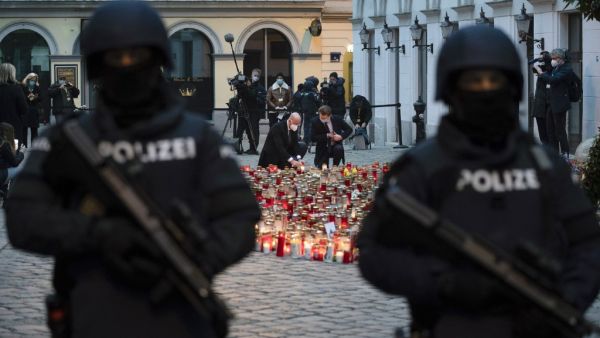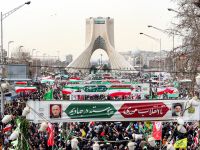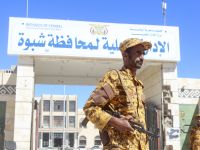The terrorist attack in Vienna last week constitutes a rude awakening for Austrian authorities who are struggling to make up for flaws in their efforts to contain radical Islamist networks in the country, with the Muslim Brotherhood and its offshoots finding themselves in the eye of the storm.
Austrian police on Monday raided more than 60 places allegedly linked to radical Islamists and seized millions of euros in cash, with orders for 30 suspects to be questioned.
The operation came a week after a convicted ISIS supporter killed four people in a shooting rampage in the heart of Vienna, but prosecutors said the raids were not linked to the attack.
Austrian Interior Minister Karl Nehammer said the police action was aimed at “cutting off the roots of political Islam”.
“We are acting against these criminal, extremist and inhuman organisations with all our strength,” he said in a statement.
Monday’s raids on apartments, houses, businesses and association premises in four Austrian provinces targeted people suspected of belonging to or supporting the Palestinian Islamist movement Hamas and the Muslim Brotherhood, the prosecutors’ office in the southern city of Graz said.
“The suspicion is of belonging to a terrorist organisation, financing terrorism, association against the state, criminal organisation and money laundering,” it said in a statement, adding that the investigation had begun more than a year ago.
Hamas, which won the last Palestinian parliamentary election in 2006, was founded as the Palestinian branch of the Muslim Brotherhood.
Hamas is designated a terrorist organisation by the United States and European Union.
The Muslim Brotherhood is not on the EU bloc’s terrorism blacklist but prosecutors said they were investigating links between the two organisations.
Monday’s raids were carried out in four of Austria’s nine provinces: Styria, of which Graz is the capital, Carinthia, Vienna and Lower Austria.
The Styria region prosecutors’ office said it was “carrying out investigations against more than 70 suspects and against several associations which are suspected of belonging to and supporting the terrorist Muslim Brotherhood and Hamas organisations.”
“In the case of 30 of the suspects, orders have been given for them to immediately be presented for questioning,” it added.
It said “the operation has no connection to the terror attack in Vienna of November 2” but was rather the result of “intensive and comprehensive investigations carried out for more than a year.”
“Protecting Muslims”
Among the alleged offences are forming a terrorist association, financing of terrorism and money laundering.
More than 930 police officers took part in the operation, codenamed “Luxor,” and millions of euros in cash were seized, Austria’s top security chief Franz Ruf told a press conference.
The prosecutors’ statement said the operation “was not targeted at Muslims or Islam as a religious community.”
“On the contrary these measures are also intended to protect Muslims, whose religion is abused for the purposes of an ideology hostile to the constitution,” it said.
Last Monday’s shooting was the first major attack of its kind in Austria for decades and the first blamed on a jihadist.
The gunman was identified as Kujtim Fejzulai, 20, a dual Austrian-Macedonian national who was convicted and imprisoned last year for trying to go to Syria to join ISIS.
Austria has acknowledged security lapses in the run-up to the attack, including failing to act on warnings from Germany and Slovakia about Fejzulai and his contacts.
The head of Vienna’s anti-terror agency was suspended last week after further revelations came to light about intelligence failings.
“We have to build up comprehensive know-how, we don’t have this in Austria to that extent,” Ruf said, referring to the country’s intelligence services.
Ruf confirmed on Monday that Fejzulai — who was released early from prison in December — had a meeting in July with German and Swiss Islamists in Vienna.
Last week the government also ordered the closure of two mosques in Vienna frequented by the attacker.
French President Emmanuel Macron will hold talks with Austrian Chancellor Sebastian Kurz in Paris on Tuesday before the two leaders join a phone call with the leaders of Germany and the European Commission among others, the French presidency said.
Europe is reeling from a spate of deadly Islamist attacks in France and Austria in recent weeks.
This article has been adapted from its original source.








